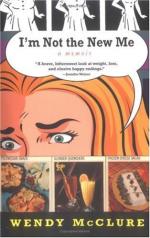“We were thinkin’ of Theodore,” said Lucas. “You’re leavin’ him out, seems so.”
“’Tain’t ’cause I forgot him; but I give him all I cal’lated to when he quit home five year ago—money; and so I sha’n’t leave him anythin’. Wouldn’t do him no good, if I did,” he said to himself.
“Well, we should feel better if you did,” said Armida. “I don’t want he should be left out. Neither would mother if she was livin’; she’d feel bad.”
[Illustration: “’WALL, ARMIDY, WALL, LUCAS, THE DOCTOR DON’T SEEM TO THINK I SHALL TUCKER IT OUT MUCH LONGER.’”]
“I’ll settle it with your ma when I see her. Come, now, what do you say?”
There was a long silence, which Armida broke by saying, “S’posin’ him or me was to want to leave the place, I mean for good—get tired of stayin’ here to home?”
“Wall,” said her father with a chuckle, “if either of you feels like givin your share to the other, you may. I ain’t goin’ to leave my old place for either of you to sell to each other nor nobody else. I expect you to live on’t.”
“Well,” now objected Lucas; “s’posin’ one of us should git married, then how would it be?”
“Why, live along. Put in and work a leetle harder, maybe. This farm carried a pooty fair number when I was younger. If you should git too numerous you could build on either side. I guess there ain’t no gret danger,” he added.
As neither offered further objections, Mr. Huxter said: “There’s been talk enough, I s’pose. Do you agree to ’t?” He waited while each gave an audible “yes.” “Naow,” said he, “I hain’t an earthly thing to hamper me.”
The father dead, for the brother and sister no new life began. Armida still skimmed all the milk and made the butter, looked after Lucas as she had before, and Lucas attended impartially to the whole of the farm, and Armida sometimes wondered what difference it made. To be sure the profits were divided with the most rigid exactness; but everything went tranquilly on until more than a year after their father’s death, when Armida had a suspicion, confirmed by appearances, that Lucas was becoming interested in a young girl in a neighborhood a few miles away. The spirit of jealousy surely animated poor Armida, for nothing else could have prompted her action. Having ascertained the girl’s name, she caused to be conveyed to her the facts, colored for the occasion, relating to the partition of the house and land; and the young woman, having a shrewd eye to the main chance, bluntly told Lucas when next she saw him that she didn’t wish the half of a house nor the half of a farm.
[Illustration: THE DIVIDED HOUSE.—“ARMIDA’S SIDE OF THE HOUSE FELL MORE AND MORE INTO RUIN; WHILE LUCAS ... KEPT HIS IN EXCELLENT REPAIR, AND OCCASIONALLY RENEWED THE PAINT.”]
Lucas had thought all might go on smoothly with a wife, and had counted on her accepting the situation. Inquiring as to who had meddled in his affairs, he traced the matter back to Armida, and coming home mortified and angry, reproached her in unsparing terms, ending his recital of wrongs with: “I don’t know what you did it for, unless you was afraid your half was going to be invaded; and if you feel that way you’d better keep to your side and take care of your own property. I ain’t going to interfere.”




